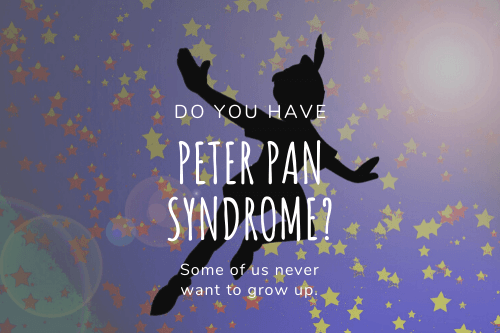
YouTube / iTunes / Spotify / Radio Public / Pocket Casts / Google Podcasts / Breaker / Overcast
Listen to ArtisanEnglish.jp posts & lesson intros here.
Word of the Day: Peter Pan Syndrome
Have you ever met a person who seems never to want to grow up?
They could be experiencing Peter Pan Syndrome.
I think we can call it a kind of escapism in which an adult doesn’t want to participate in adult behaviour.
People with Peter Pan Syndrome choose not to accept the responsibilities of adulthood, refuse to mentally mature and instead prefer to engage in activities generally associated more with childhood.
Perhaps we all know someone like that, especially if you live in Japan, where the Otaku and cosplay cultures are enormous.
I should admit that I come from a conservative culture.
When I first came to Japan, I didn’t want to understand Otaku or their culture.
I saw it as abnormal, and Otaku were the poster children for Peter Pan Syndrome as far as I was concerned.
Please note that I’m using past tense here.
I’ve since changed my mind and have become more accepting.
We all have our preferred forms of escapism.
Life is just so hard sometimes that we need to get away from it all for a little while to prevent ourselves from going mad.
Going to the movies, reading, and what’s become known as the RV lifestyle are all ways of doing that.
These are all ways in which we can temporarily lose ourselves in an alternate reality where our daily problems do not exist.
Peter Pan Syndrome only comes into play when we prefer to stay in that alternate reality permanently.
I mean, who cares if a banker dresses up as their favourite animation character on the weekends?
If it helps them cope with life, then it’s not a problem.
Perhaps we all need a touch of Peter Pan Syndrome from time to time.
Flesch-Kincaid Readability Test
This post is understandable by someone with at least an 8th-grade education (age 13 – 14).
On the Flesch-Kincaid reading-ease test, this post scores 68.
The higher the score on a scale of 0 – 100, the easier the passage is to read.

